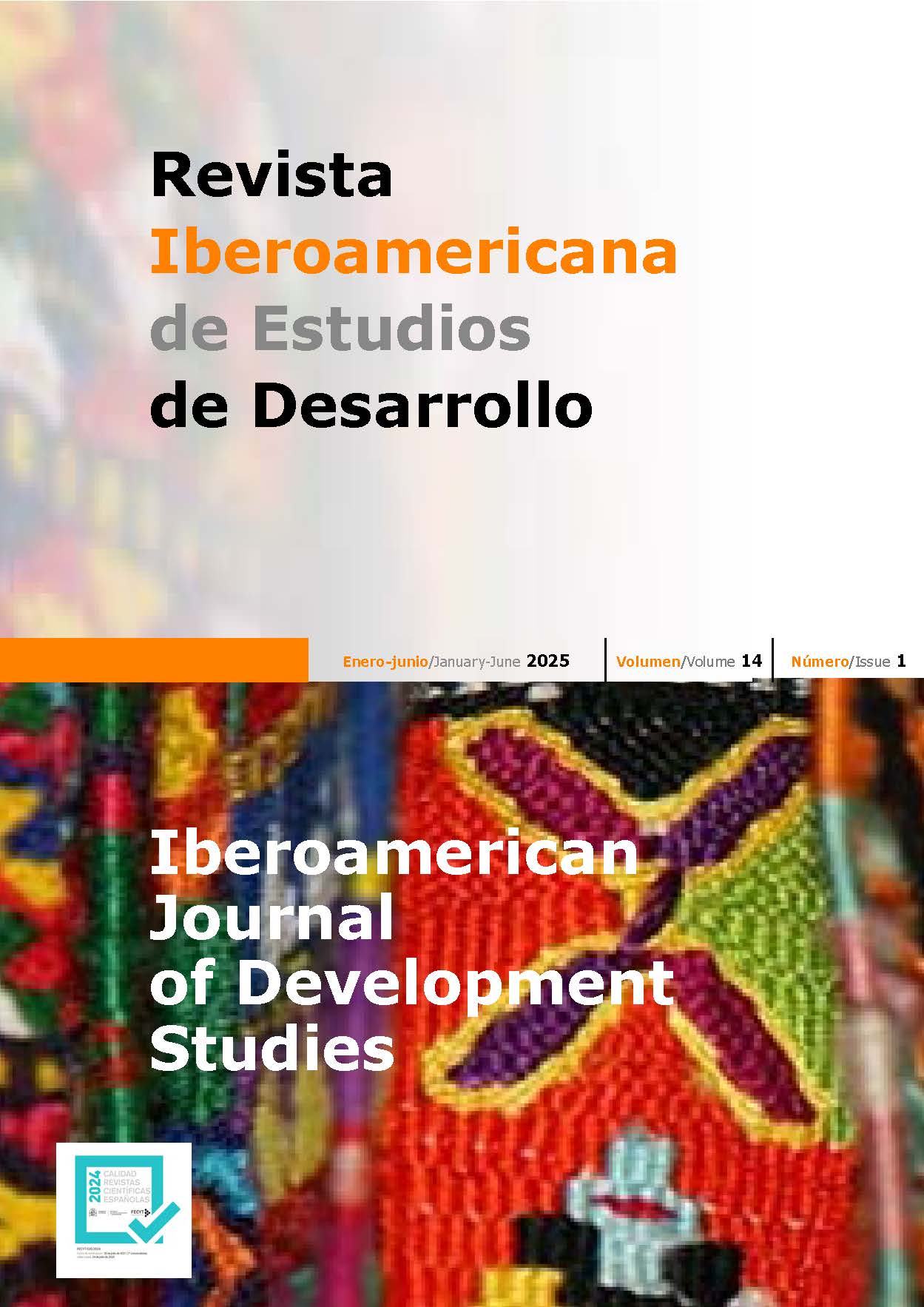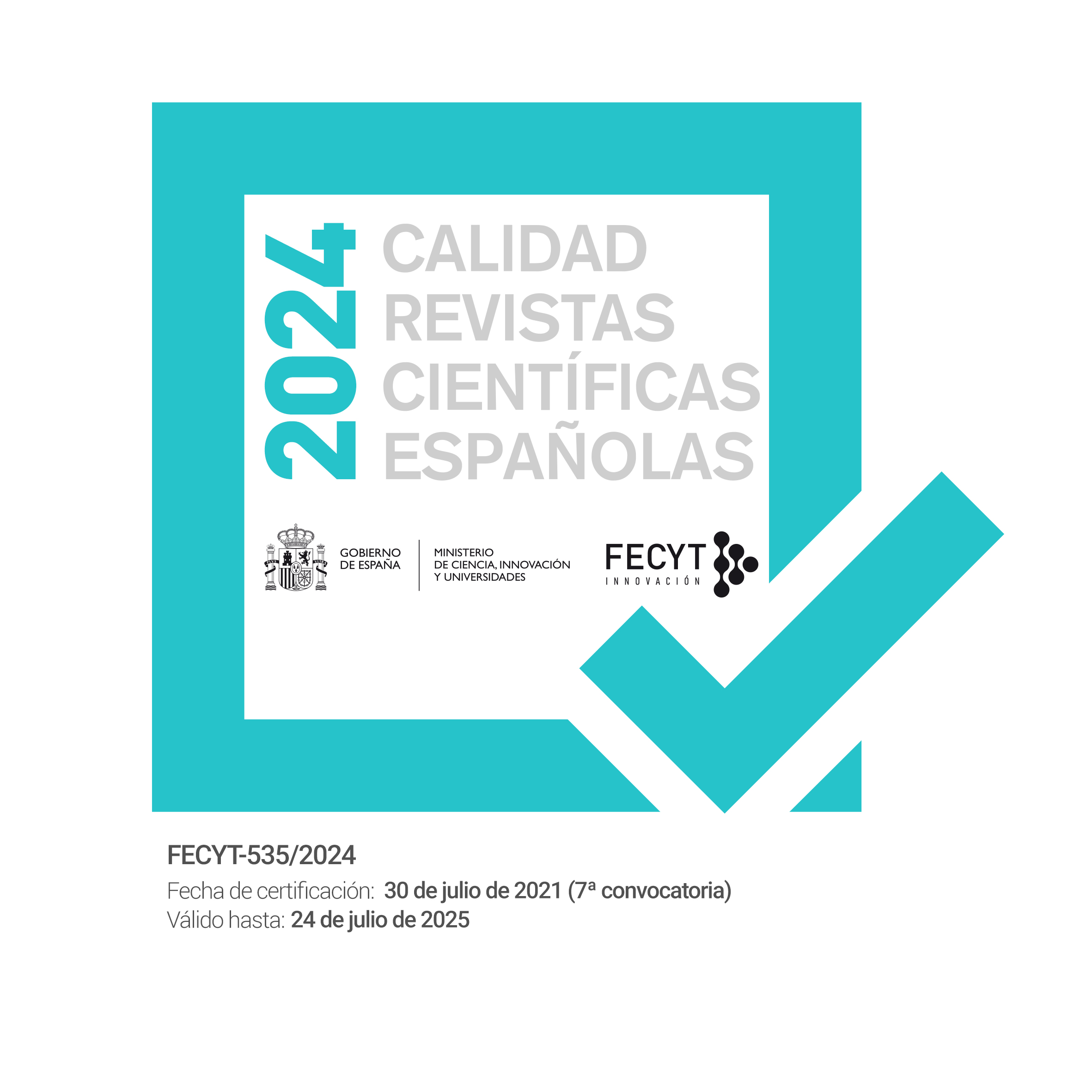From community to cooperative and vice versa: continuities, ruptures or transitions in community-based tourism projects in Mexico?
DOI:
https://doi.org/10.26754/ojs_ried/ijds.10649Keywords:
social and solidarity-based economy, cooperatives, community, community-based tourism, MexicoAbstract
The classical questioning of the articulation between «community» and «cooperatives» acquires a new relevance in the context of the ecosocial transition. Beyond the postulate of fit or alterity between both types of institutions, this article proposes a nuanced framework of analysis informed by field studies to reposition the issue on the social and solidarity economy research agenda. First, based on a selective literature review, some research avenues are proposed on the topicality of the community and cooperative debate in the context of current ecosocial transitions. Secondly, we propose a framework of analysis to understand the «community»-«cooperatives» relationship, which we will focus in the third section on the community-based tourism sector in rural and peasant areas in Mexico. The last section proposes to extend this analytical framework to other alternatives built in response to the challenges of the ecosocial transition.
Display downloads
References
AZKARRAGA J (2017). Slaying the dragon together: Modern Basque cooperativism as a transmutation of traditional society. En: Arregi Gordoa X, Hess A (eds.). The Basque Moment. Egalitarianism and Traditional Basque Society. University of Nevada Press, Reno, pp. 217-254.
BEAUCAGE P (2017). Nahuas et Totonaques: une résistance enracinée. Relations mai-juin.
BIANCHI M (2021). Les cooperative di comunità como nuovi agenti di aggregazione sociale e sviluppo locale. Impresa sociale 2:70-83.
BOEGE E (2019). El diálogo de saberes y un marco para otros modos de hacer etnografía. Antropología Americana 4(7):37-54.
CAÑADA E (2015). La comercialización del turismo comunitario en América Latina. Anuario de Estudios Centroamericanos 41:159-189. DOI: https://doi.org/10.15517/aeca.v41i1.21845
COHN PJ, CARROLL MS, FORCE J (2013). So happy together or better off alone? Women’s economic activities, cooperative work, and empowerment in rural Paraguay. En: Gonzales V, Phillips R (eds.). Cooperatives and Community Development. Routledge, Londres y Nueva York, capítulo 5.
CONDE BONFIL C (coord.) (2022). Actualidad y perspectiva de la economía social y solidaria en México. Universidad Autónoma Metropolitana Unidad Xochimilco, Ciudad de México.
CRUZ CORIA E, VELÁZQUEZ CASTRO J, BRIONES JUÁREZ A (2020). Prácticas de economía solidaria en las cooperativas artesanales de Campeche, México. Summa 2(2).
DESROCHE H (1976). Le projet coopératif. Economie et Humanisme, Les Éditions Ouvrières, París.
DÍAZ F (2007). Comunidad y comunalidad. En: Robles Hernández S, Cardoso Jiménez R (coords.). Floriberto Díaz. Comunalidad, energía viva del pensamiento mixe. Ayuujktsënää’yën-ayuujkwënmää’ny – ayuujk mëk’äjetën. UNAM-Programa Universitario México, Nación Multicultural, México.
DRAPERI J-F (2012). La république coopérative. Larcier, París.
ELLISON N (2004). Institutions de réciprocité et projets productifs dans les communautés totonaques (Mexique). En: Sabourin E, Martine A (dirs.). Lien social et intérêts matériels dans les processus d’action collective. Cirad, Mauss, París.
GONZÁLEZ-DAMIÁN A, PALAFOX A (2014). Sociología del turismo en español. Revisión exploratoria de artículos publicados en revistas iberoamericanas 2003-2013. Estudios y Perspectivas en Turismo 23.
HAUBERT M (1981). De la tradition communautaire à la modernité coopérative: évolution, greffage ou récupération. Revue Tiers Monde 22(88):789-808. DOI: https://doi.org/10.3406/tiers.1981.4068
HAUBERT M (1986[1967]). La vie quotidienne des Indiens et des Jésuites du Paraguay du temps des missions. Hachette, París.
HURTADO J, UDABE AIZPURUA L (2023). Creación, desarrollo y retos de OlatuKoop. Gizaekoa 20. https://ojs.ehu.eus/index.php/gezki/article/view/25156, acceso 30 de septiembre de 2024.
ITÇAINA X. (2023). Entre matrice territoriale et enjeux sectoriels Une approche sociohistorique du travail politique des coopératives de production en Pays Basque. Revue de la régulation [en línea] 34. https://doi.org/10.4000/regulation.21959, 30 de septiembre de 2024. DOI: https://doi.org/10.4000/regulation.21959
JOUAULT S, GARCÍA DE FUENTES A, RIVERA T (2015). Un modelo regional de turismo alternativo y economía social en la península de Yucatán, México. Otra Economía 9(17):164-176. DOI: https://doi.org/10.4013/otra.2015.917.05
KIEFFER M (2018). Turismo rural comunitario y organización colectiva: un enfoque comparativo en México. Pasos. Revista de Turismo y Patrimonio Cultural 16(2):429-441. DOI: https://doi.org/10.25145/j.pasos.2018.16.030
KIEFFER M (2021). El turismo de las comunidades rurales en México: un turismo alternativo enmarcado en la Economía Social y Solidaria. Otra Economía 14(26):62-82.
LEMAS VALENCIA MF, GARCÍA DE FUENTES A (2019). Economía social y turismo alternativo: el caso de la península de Yucatán. Dimensiones Turísticas 3(5):79-95. DOI: https://doi.org/10.47557/IKVX1907
MAHDI M (2013). La coopérative ethno-lignagère dans le Maroc oriental: greffe ou bricolage institutionnel? Revue des Mondes Arides 31:73-79
MERRIEN A-M (2021). Reconnaissance identitaire et mouvement coopératif dans l’expérience des Inuit du Nunavik, tesis doctoral. Universidad de Montreal.
METEREAU R (2023). Construction d’une autonomie relative dans les territoires ruraux du Nicaragua: une lecture méso-économique du coopérativisme paysan. Recma. Revue internationale de l’économie sociale 1(367):116-130. DOI: https://doi.org/10.3917/recma.367.0120
MORALES M (2013[1990]). Iglesia autóctona. Chinameca. En: Esparza M (coord.). Un legendario activista de Chiapas: Mardonio Morales. Antecedentes del levantamiento zapatista de 1994. Centre INAH, Oaxaca, pp. 207-212.
NAVA MORALES E (2018). Totopo al aire. Radio comunitaria y comunalidad en el Istmo de Tehuantepec. Ciesas, Ciudad de México.
PALOMINO VILLAVICENCIO B, GASCA ZAMORA J, LÓPEZ PARDO G (2016). El turismo comunitario en la Sierra Norte de Oaxaca: perspectiva desde las instituciones y la gobernanza en territorios indígenas. El Periplo Sustentable 30:6-37.
PASQUIER MERINO AG, TORRES SALCIDO G, MONACHON DS, VILLATORO HERNANDEZ JG (2022). Alternative Food Networks, Social Capital, and Public Policy in Mexico City. Sustainability 14(23):16278. https://doi.org/10.3390/su142316278, acceso 30 de septiembre de 2024. DOI: https://doi.org/10.3390/su142316278
PIECK GOCHICOA E, VICENTE DÍAZ M, COMUNIDAD DE YOMOL A’TEL (2019). Voces de Yomol A’Tel. Una experiencia de economía social y solidaria. Universidad Iberoamericana, Ciudad de México.
POLANYI K (2001[1944]). The Great Transformation. The Political and Economic Origins of Our Time. Boston, Beacon Press.
RECONDO H (2007). La política del gatopardo. Multiculturalismo y democracia en Oaxaca. México, Cemca, Ciesas. DOI: https://doi.org/10.4000/books.cemca.2066
ROCHA FLORES FS (2022). La comunalidad en Santa Catarina Lachatao, Oaxaca: análisis de las contribuciones del turismo comunitario a la defensa del territorio. Tesis de licenciatura en Ciencias Ambientales. ENES Morelia, UNAM.
SIBILLE H (2022). L’ESS dans les dynamiques collectives de territoire en transition. Le territoire comme possibilité. Recma. Revue Internationale d’Économie Sociale 364(2): 206-216. DOI: https://doi.org/10.3917/recma.364.0206
SMITH A (2016). The Politics of Economic Activity. Oxford, Oxford University Press.
SOSA GONZÁLEZ F, GUTIÉRREZ OCHOA S, CARRILLO HUERTA M (2014). Capital social y acompañamiento comunitario como estrategias de desarrollo local: el caso de la Unión de Cooperativas Tosepan Titataniske en la Sierra Norte del Estado de Puebla, México. Observatorio Iberoamericano del desarrollo local y la economía social 8(17).
SVAMPA M (2022). Dilemas de la transición ecosocial desde América Latina. Documentos de trabajo, n.° especial. FC/Oxfam Intermón, Fundación Carolina/Oxfam Intermón, Madrid. DOI: https://doi.org/10.33960/issn-e.1885-9119.DTFO02
VARGAS-CETINA G (2005). Anthropology and cooperatives: from the community paradigm to the ephemeral association in Chiapas, Mexico. Critique of Anthropology 25(3):229-251. DOI: https://doi.org/10.1177/0308275X05055210
VÁZQUEZ GARCÍA AR (2023). La moneda comunitaria: expresión de economía social y solidaria. Contraste regional 11(22):9-27.
VILLALBA EGUILUZ U, PÉREZ DE MENDIGUREN JC (2019). La economía social y solidaria como vía para el buen vivir. Revista Iberoamericana de Estudios de Desarrollo 8(1):106-136. DOI: https://doi.org/10.26754/ojs_ried/ijds.338
WOKURI P (2024). Une énergie verte et démocratique? Les projets coopératifs d’énergie renouvelable au Danemark, en France et au Royaume-Uni. Le Bord de l’Eau, Lormont.
Downloads
Published
Issue
Section
License
Copyright (c) 2025 Xabier Itçaina, Maxime Kieffer

This work is licensed under a Creative Commons Attribution-NonCommercial-NoDerivatives 4.0 International License.
How to Cite
Accepted 2025-01-17
Published 2025-05-06








